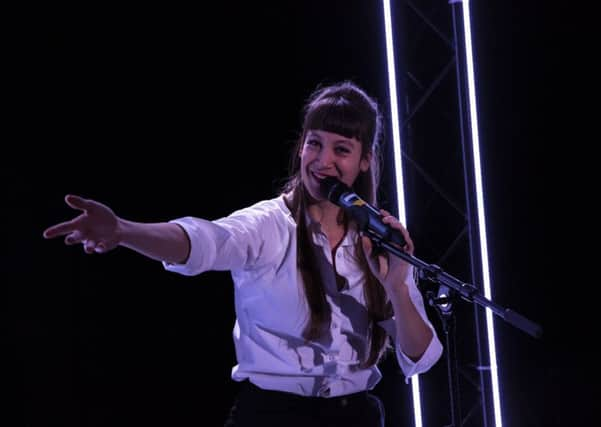Dance review: Antigone, Interrupted, Perth Theatre


Antigone, Interrupted, Perth Theatre ****
Weinachter’s plea falls on deaf ears for two reasons: one, she has comic timing down to a fine art; and two, those who have followed Weinachter’s career know that no luck is required.
For the next 75 minutes, Weinachter holds us close, like best friends at a sleepover. The “interruption” of the show’s title comes in the form of chummy chat, delivered from seats scattered throughout the audience. Personal tales of her own childhood experiences of Sophocles’ 2000-year-old tragedy are interwoven with scene-setting from the play itself.
Advertisement
Hide AdShe’s not completely alone on stage; a microphone and loop pedal is put to clever use, and Luke Sutherland’s sound design along with Emma Jones’ astute lighting fill out the space. There’s also the text, a mesh of new writing and some as old as Sophocles rubs shoulders with Scottish Dance Theatre’s artistic director, Joan Clevillé. Delivered by Weinachter’s soft, French accent, the words are like breadcrumbs on the ground, each sentence beckoning us on.
Then, just as we’ve settled into the rhythm of her voice, she switches seamlessly to another mode of storytelling: the body. Clevillé’s choreography, created in collaboration with Weinachter, cuts to the heart of Antigone’s teenage trauma.
As her body arches and twists, pushing against the air for a salve that never comes, the pain of her situation is writ large. The family members she has loved and lost at such a young age, the liberty taken from her by a power-hungry uncle, the youthful desire to stand up for what she believes in regardless of the cost, is all there in her straining torso.
If there’s a criticism, and it’s more desire than castigation, then it’s born out of admiration for Weinachter’s skill and talent. When she sits in her chair, every inch the teenager refusing to bend to fit another’s agenda, and delivers lines from the play, Weinachter is utterly compelling. The words of this timeless Greek tragedy in her mouth are like golden nuggets to be savoured and looked back on – so why are there so few of them?
The power of Sophocles in this format would speak clearly to an audience embroiled in challenging political times and I for one would love to hear Weinachter deliver more of them. Clevillé cites the relatively recent unrest in his hometown of Barcelona as a starting point for this adaptation. Again, he could turn up the volume on wrongful treatment of those who dare to raise their head about the parapet.
That said, at the heart of Antigone is the tale of a young woman who chooses defiance over compliance, and Weinachter communicates that loud and clear. Kelly Apter